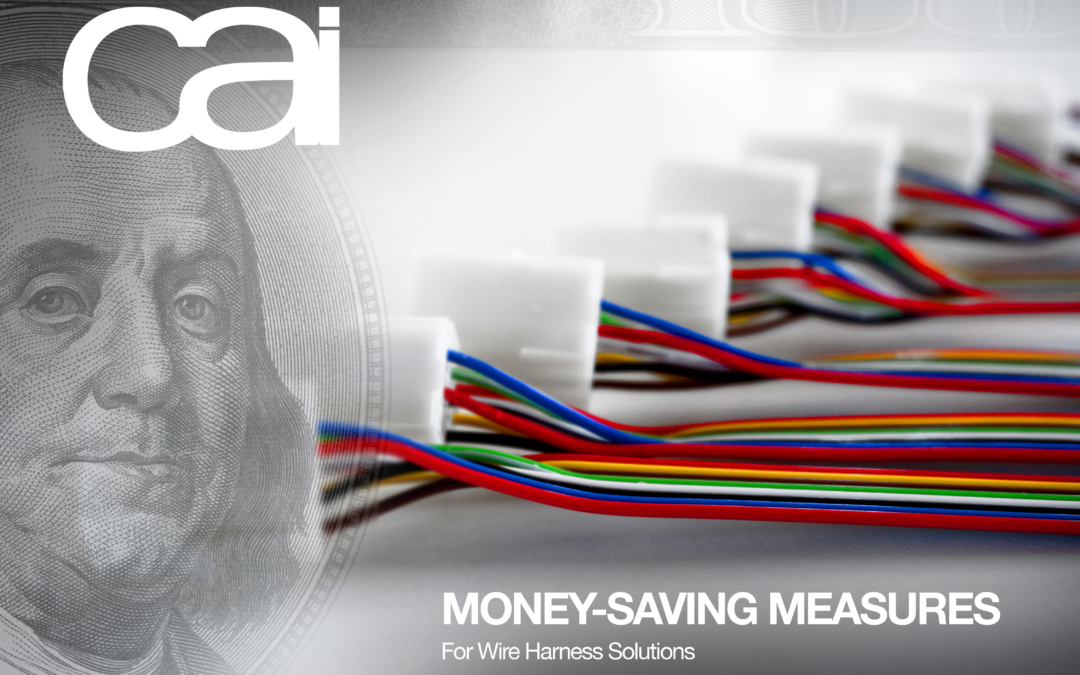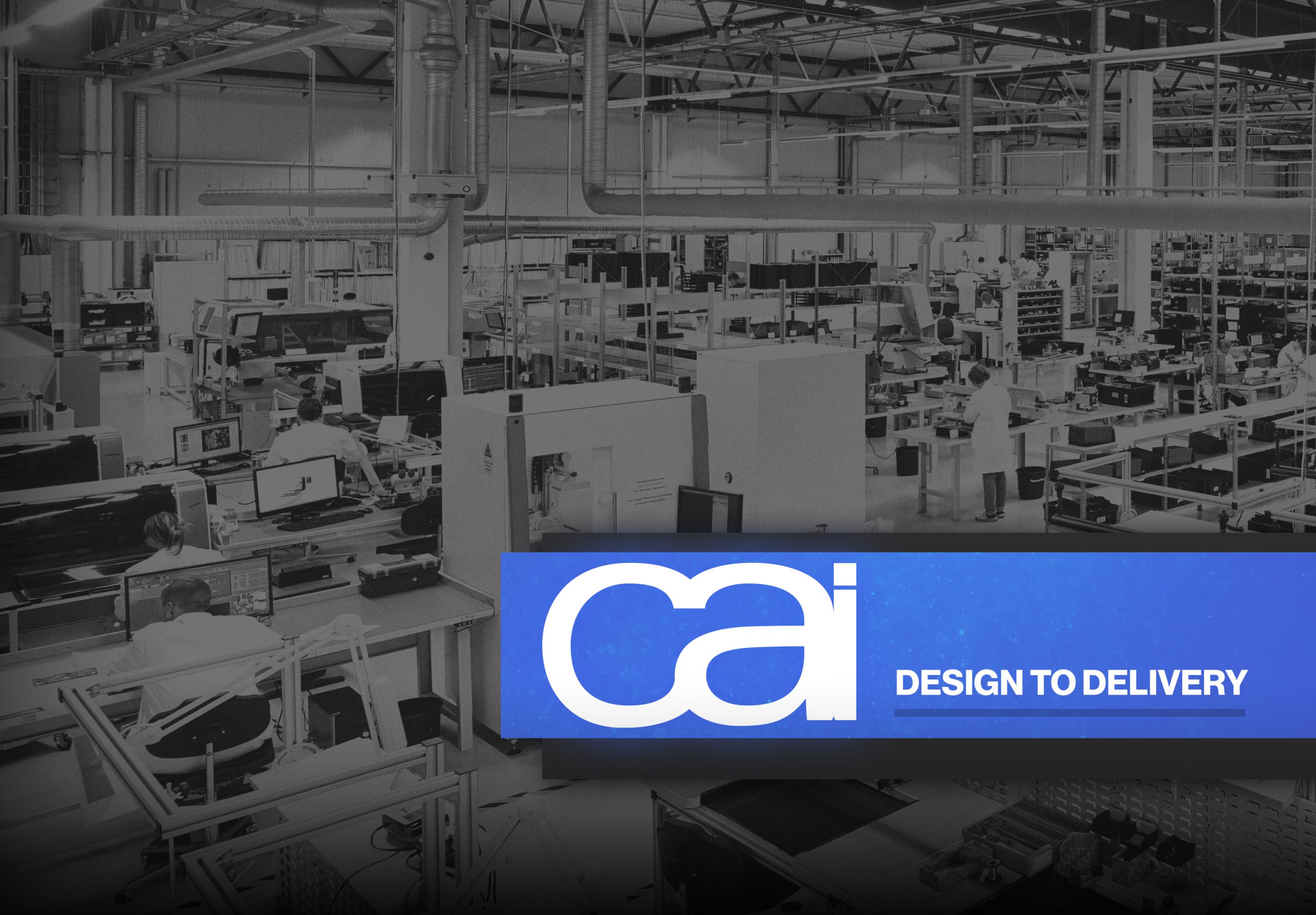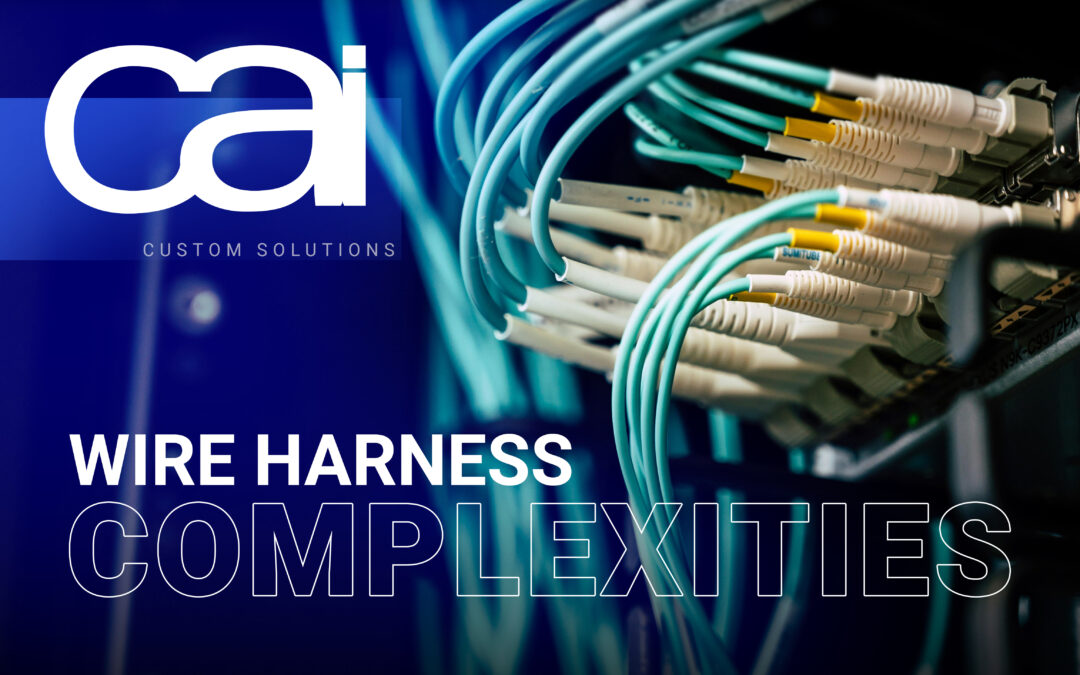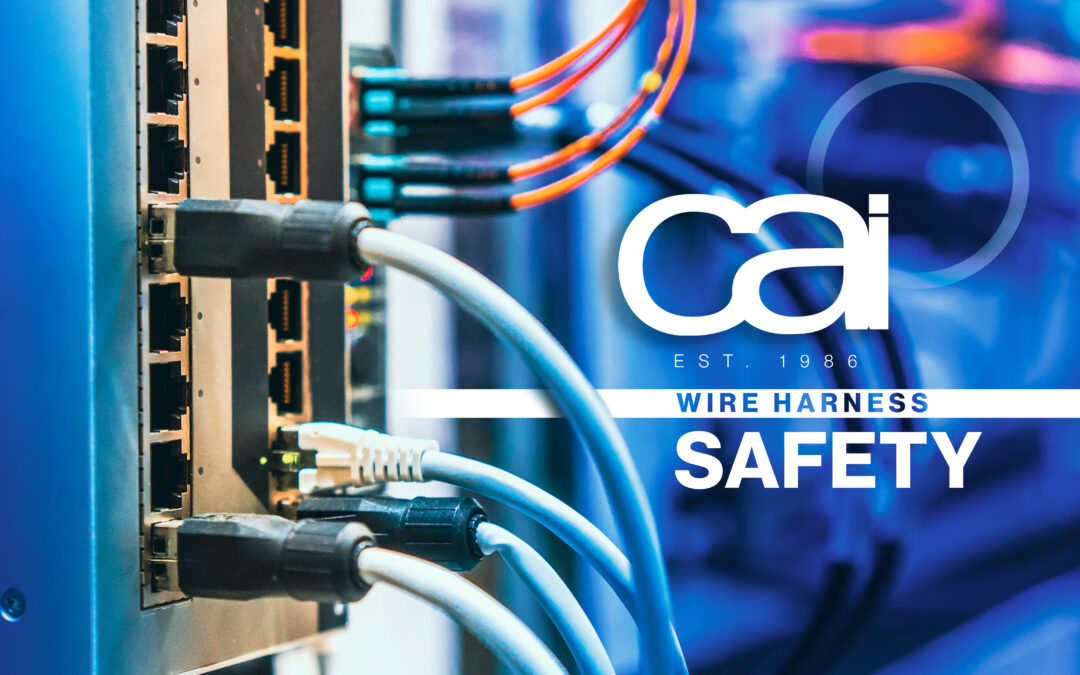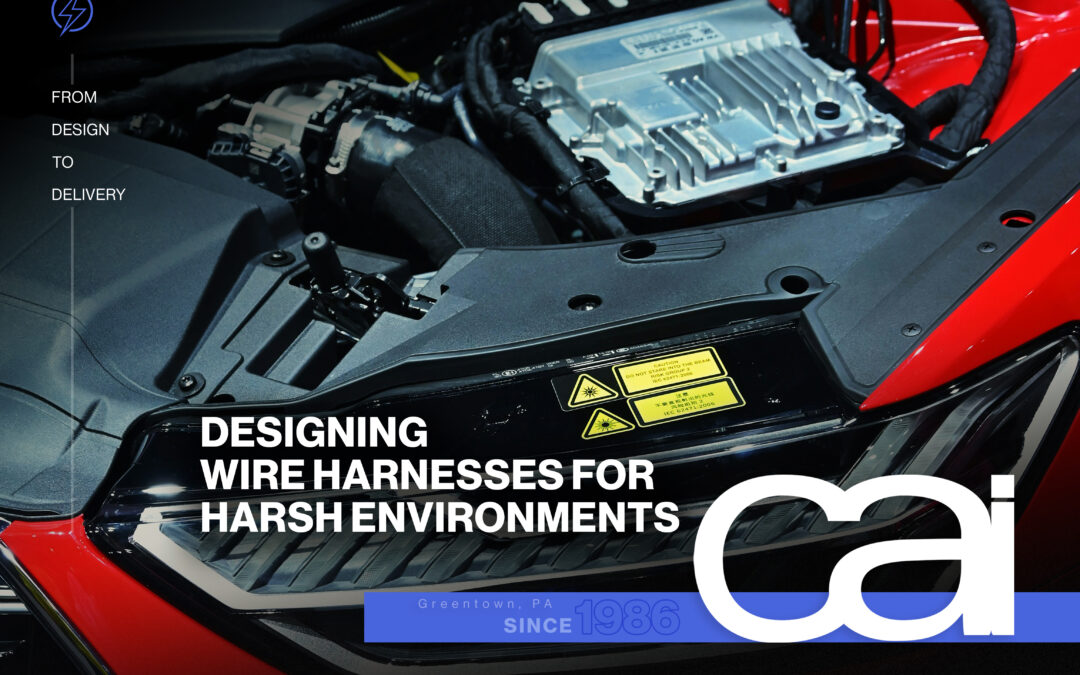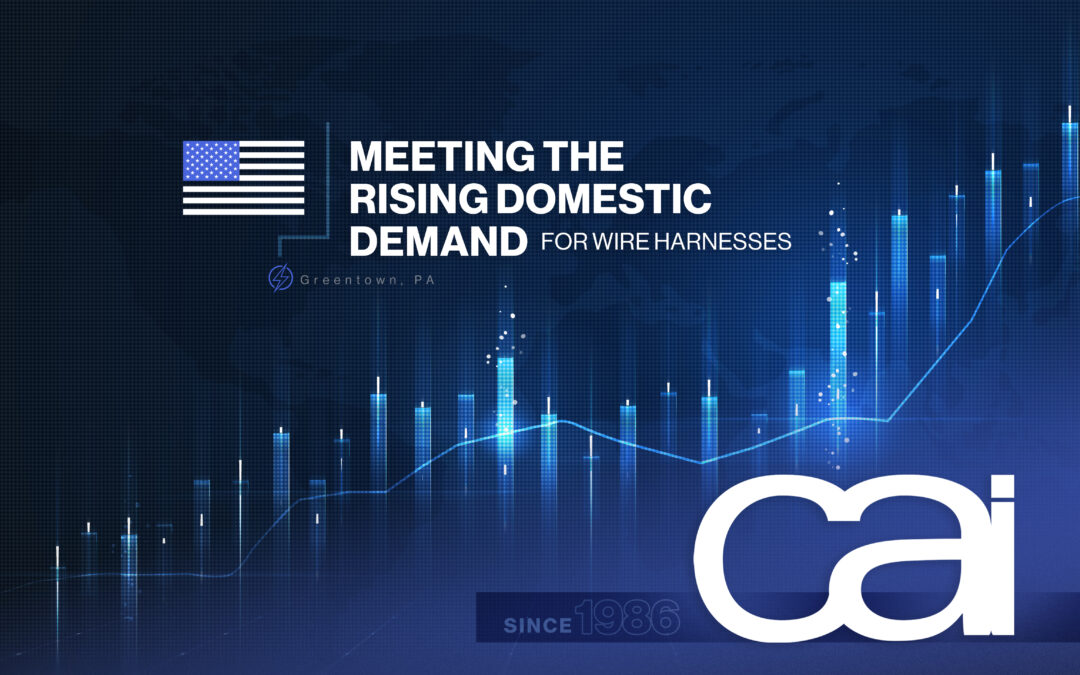With over 35 Years of Manufacturing Excellence, CAI is Your Savings Solution
Before undertaking or upscaling product manufacturing, it’s smart to know just what you’re up against and what it’s going to take to bring your vision to life. You may be considering using your internal overhead or creating additional internal infrastructure to “do it yourself,” but before you go down that path, you might want to consider that you may be better served relying on an experienced turnkey manufacturing partner to handle things for you.
A turnkey manufacturer is one who can carry out just about any and every step of the manufacturing process depending on your needs, including design feedback, prototype, production, testing, and delivery. There are multiple benefits of outsourcing your manufacturing needs in this way, but arguably the biggest benefit is the cost savings generated by avoiding the DIY learning curve.
For over 35 years, CAI has been a successful manufacturer of high-quality custom wire harnesses, cable assemblies, and other components, saving clients thousands of dollars they would have otherwise incurred doing it themselves. For more details on how we can help you cut costs when you work with us, start a conversation with us today.
The Costs of Doing Business
According to Investopedia, there are two main types of costs with which a business must deal — operating and overhead. Directly related to the production of a product or service, operating costs (OpEx), or “direct costs,” include the price of raw materials, components, in-process and finished goods inventory, operational labor, and rented/leased machinery and equipment necessary for daily operation. Also referred to as non-operating or indirect costs, overhead costs consist of ongoing expenses that support a company’s operations, like rent, insurance payments, and utilities.
On top of the direct and indirect expenses is capital expenditures (CapEx) which some companies also choose to take on. CapEx is money used to acquire, upgrade, maintain, and repair physical assets such as property, buildings, technology, and equipment. Often used to pursue new projects or investments, capital expenditures typically revolve around major, long-term expenses rather than those associated with a company’s day-to-day operations. Meanwhile, OpEx items are generally pay-as-you-go items that are used up in the year in which they are purchased.
These are all costs associated with business endeavors such as taking on your own manufacturing project, and the larger the endeavor, the greater the costs. Whatever the cost classifications, here’s how a turnkey manufacturer can help you save:
• Avoid Direct Labor Costs
According to recent numbers, labor can account for up to 70% of total business costs! Combined with the ever increasing costs of hiring and maintaining a workforce, your direct and indirect labor (administration, marketing, and production) costs drive your bottom line. When your labor demands fluctuate, you are challenged to respond and optimize operational costs. Underutilized labor results in daily wages, annual salaries, and hiring and training costs (including health care, payroll taxes, overtime, bonuses, sick days, vacation days, insurance, and more) that can be better managed by smart sourcing.
When you choose to create or expand your in-house capabilities, it will certainly result in additional labor costs and likely cost drain when the personnel is underutilized. Reducing your cost of labor is arguably the greatest benefit of partnering with an experienced manufacturing source.
• Avoid Costs of Jumping From One Place to Another
As with any business dealings, with more people or companies involved, overall costs increase. That’s why, when you hear phrases like “cut out the middleman,” it’s typically a good thing. A reliable turnkey source can more efficiently handle the manufacturing process and move seamlessly from start to finish. This not only saves you the time, cost, and hassle of coordinating with multiple agents and procuring and inventorying unique and commodity parts, but it also makes managing in-process handling, assembly, quality control, and maintenance a breeze.
When there are more cooks in the kitchen, there’s a greater chance of things going wrong, and that downtime just means more money than you were thinking about spending. Plus, the longer a project lasts, the more you’re likely to end up paying in the long run. A turnkey manufacturer like CAI can streamline processes to save more time and more money in the long run.
• Avoid Large Equipment & Property Investments
By outsourcing your manufacturing needs, you won’t have to worry about investing in expensive machinery whether through leasing or a CapEx commitment. The same can be said about having to buy or lease additional space to store and use that equipment and materials.
A quality cable and wire harness manufacturer like CAI has the infrastructure in place to handle your project and knows how to use the equipment and space as efficiently as possible. That goes for the materials as well. With its years of experience, management and countless connections, CAI is well-equipped with state-of-the-art tools and resources which make it the best source and opportunity for improving your bottom line.
• Avoid Extra Overhead Costs
While overhead costs are essential to “operating” a business, they’re often considered separate from the category of “operating costs.” Generally fixed costs, meaning they typically don’t change every month, overhead costs are what it takes to keep the lights on, and they can add up fast.
Consider the vast amount of overhead costs: rent; property taxes; insurance; licensing fees; office supplies; and electricity, water, and other utilities. Plus, there’s the employees not working in direct labor positions such as accounting, legal, and marketing. When a company pays workers the same wages and benefits no matter the sales volume, they are typically considered overhead costs.
Granted, you will have overhead costs related to the main product or service you already provide. However, taking on, maintaining, or integrating less critical or unnecessary manufacturing processes into your operations increases those costs exponentially.
Working with a turnkey manufacturer can help you eliminate or alleviate the many costs associated with tackling a manufacturing project on your own. That’s not to mention the time and hassle they can also save you by delivering high-quality solutions while you concentrate on the core intellectual property and other key aspects of your business.
Still on the fence about trusting a turnkey manufacturer with your project? Ask yourself these 4 questions to know whether or not it’s the right move to outsource your manufacturing needs, or contact CAI today to learn more.
